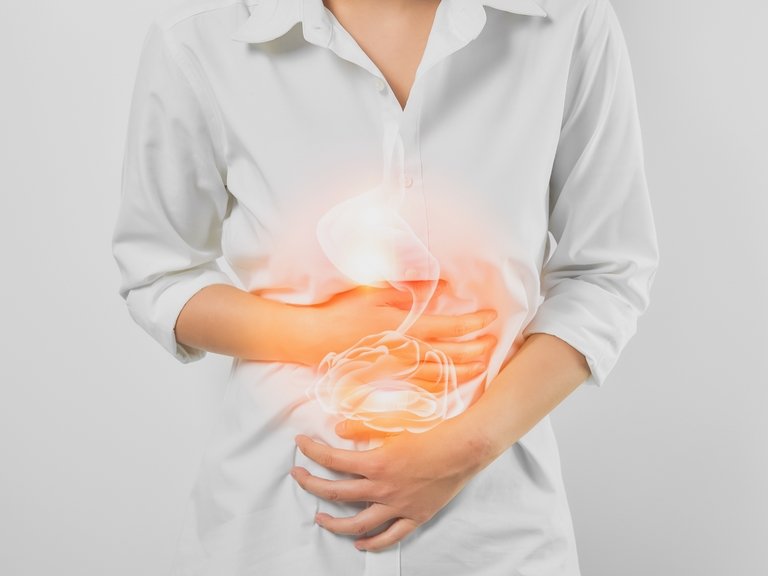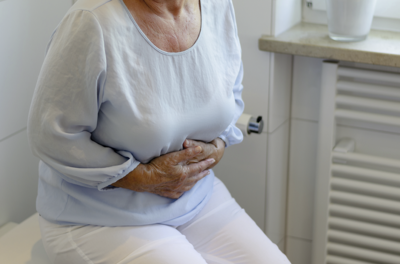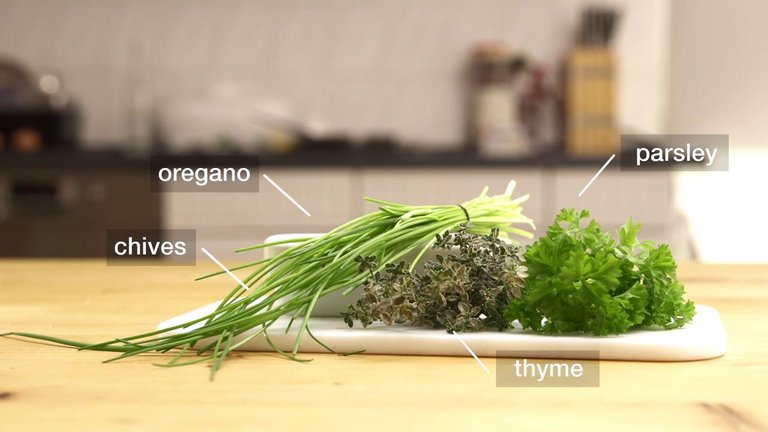Find out what you can do to relieve digestion problems.
Preventing and relieving digestion problems

Many people suffer from it, yet no one really wants to talk about it: dialysis patients often have problems with digestion due to dietary and fluid restrictions or medication. This should no longer be a matter of “what happens in the bathroom stays in the bathroom”.
Constipation
Generally speaking, constipation is a change in bowel habits, but it comes in a variety of forms. Typically patients would describe constipation as having infrequent stools; more specifically, less than three times per week. Moreover, stools may be too hard, too small or too difficult to pass. Patients may also feel that their bowels are not empty or they frequently need to strain.
Constipation is a wide-spread problem to which many factors can contribute. In most patients’ cases, no single cause can be identified. However, having chronic kidney disease or being on dialysis makes it more likely that a patient will suffer from constipation. Due to the loss of kidney function and various other factors such as a lack of exercise, impaired fluid balance and a reduced dietary fibre intake,1 the gastrointestinal tract is often adversely affected. Amongst the consequences, constipation is the most frequent symptom. Medications prescribed which relates to kidney diseases, such as iron medication (mainly pills), phosphorus-binding medicines, or potassium binding resins, can sometimes cause digestive problems, too.1
The diagnosis is the first step towards getting better

Constipation usually can be diagnosed based on your symptoms and a physical examination. You will likely need a rectal examination, and in some situations, your doctor will order further testing like blood tests, x-rays, an intestinal endoscopy or more specialised testing. The endoscopy will examine only the large intestine (sigmoidoscopy) or both the large and parts of the small intestine (colonoscopy). Don’t forget to mention any underlying diseases and medications you take when your doctor asks for history. This might include questions concerning, for example, a family history of colon cancer, blood in the stool, unexplained weight loss or recent changes in bowel habit.
Most people treat constipation themselves. Don’t take constipation lightly, though. You should definitely speak to your doctor if constipation is a recent change from your usual pattern, lasts longer than two weeks, is severe or you have other symptoms, such as blood in your stool or on the toilet paper, unexplained weight loss or fevers. The appropriate treatment depends on the type of intestinal obstruction.
What you can do about it
There are a couple of behavioural changes you might consider. Bowels are most active following meals. Start a routine to try to pass the stool at these times. Should you ignore signals to have a bowel movement, these signals will become weaker over time, whereas encouraging the digestive system on a regular basis will have a conditioning effect. Furthermore, you could increase your activity and go for a walk regularly, for example. This will promote bowel movements and relieve constipation.
You should also optimise your liquid intake within the permitted restrictions. While healthy people can drink as much fluid as they want, on dialysis, you can only drink a certain amount of water and other liquids as prescribed. Your gastrointestinal system needs the permitted quantity of fluids to do its job correctly.
If the changes mentioned above do not relieve your constipation, talk to your physician about which type of laxative would be the best choice for you. Laxatives are substances that help relieve constipation in a variety of ways. Milk sugar (lactose) can aid digestion as well. Again, remember to always talk to your physician or dietician first.
How to benefit from dietary fibre
![[Translate to COM English:] Woman is writing food diary](/fileadmin/_processed_/e/5/csm_iStock_000078753135_XXXLarge_0a40e9e3f3.png)
Increasing fibre in your diet may reduce or eliminate constipation. Dietary fibre is found in plant-based carbohydrates such as fruits, vegetables and grains.2 As it is the part of plant food which is not digested in the small intestine, it reaches the large intestine or colon. Fibre-rich foods typically contain two types of fibre, soluble and insoluble. Soluble fibre dissolves in water and creates softer, larger stools. Insoluble fibre does not dissolve in water. It actually takes in water and gives bulk to a bowel movement, making the stool easier to pass.3 Both types generally help waste get through the digestive tract more quickly.
The recommended daily fibre intake for the general population is > 30 g.4 You should gradually increase the fibre in your diet. This gives your bowel time to adjust to each level of increase before you move up to a greater amount. Lots of fibres are contained in the skin of fruits, so it is better to not peel them and to eat the whole fruit.
However, it is hard to get enough fibre in your renal diet for several reasons. Many high-fibre foods are also high in both potassium and phosphorus1,2and you may have to avoid or limit them if you need to follow potassium or phosphorus restrictions in your diet. Also, when you eat more high-fibre foods, you need to increase your fluid intake. It is essential, though, to ensure that you stay within your fluid allowance.
The higher level (35 g a day) of fibre may be impossible to reach for a person with kidney disease.2, 5 It is a good idea to carefully monitor what you eat and drink for a few days. A food diary will help you to have a constructive discussion with your physician or dietician to determine whether your choice of foods is suitable for your current condition.
Selected foods which are rich in fibre and lower in potassium:
- Fruits: raspberries, blackberries, pears, apples, strawberries, blueberries, oranges, cranberries, cherries, peaches, rhubarb.
- Vegetables: Broccoli, cauliflower, zucchini, carrots, corn, cabbage, sweet potatoes, aubergines, endive, squash.
- Pulses: Peas (frozen or from the jar), green and yellow beans.
- Grains and grain products: Whole-grain is higher in fibre content than refined grains, but also contains more phosphate. It is still preferable, as the human body can only partly digest this form of phosphate.4 It can absorb only 40 – 60% of the “unwanted” phosphates in these foods.
Diarrhea
Diarrhea is a common problem for many people. Usually, it does not last long. But when diarrhea lasts for multiple days or even weeks it can indicate is another health complication. This might mean a condition of bowel disorder, such as infections or other diseases. Regular check-ups with your healthcare professionals will provide clarity on your health status.
Typically, patients who suffer from diarrhea experience the following signs and symptoms:
- More frequent bowel movement (urgent needs)
- Loose, watery stools
- Fever
- Blood or pus in the stool
- Bloating
- Nausea
Older adults and people with weakened immune systems are at higher risk of complications due to diarrhea.
Causes of diarrhea
A number of diseases and conditions can cause diarrhea. Despite digestive disorders, diarrhea can have different causes.
These include different types of viruses, causing diseases with symptomatic diarrhea. Bacteria and parasites can cause diarrhea when being transmitted to your body through contaminated food or water. This is often associated with travelling to developing countries and is also called traveler’s diarrhea.
Further, some medication can cause unintentional reactions such as diarrhea. It is important to inform your care team about such changes in your usual habits as the treatment might need to be adjusted.
Different forms of food intolerances can be associated with causing diarrhea. This relates to lactose (milk sugar) being found in milk and other diary products or fructose (natural fruit sugar) being found in fruits and honey. Also, artificial sweeteners found in chewing gum or other sugar-free products can cause diarrhea.
Related complications
Diarrhea can cause dehydration and electrolyte imbalance, which can be life-threatening if untreated. Dehydration is particularly dangerous in children, older adults and those with weakened immune systems. If you have signs of serious dehydration, seek medical help. Inform your care team about recently experienced symptoms! It may also signal more serious problems.
Some foods can support the relief of diarrhea
Certain low-fibre foods can help make your stool more solid. If you have diarrhea, try adding these foods into your diet:
- Potatoes, prepared lowering potassium content
- Rice (white)
- Noodles
- Applesauce
- White toast bread
- Chicken or turkey without the skin
- Lean ground beef
- Fish
Protect yourself against infectious diarrhea
- Wash your hands frequently & properly with soap. Wash your hands before and after handling or preparing food. Wash your hands after handling uncooked meat, using the toilet, changing diapers, sneezing, coughing and blowing your nose.
- Use an alcohol-based hand sanitizer when washing is not possible. Apply the hand sanitizer as you would hand lotion, making sure to cover the fronts and backs of both hands.
- You can prevent food-based illnesses that cause diarrhea by properly storing, cooking, cleaning and handling foods.
Nausea and vomiting

Vomiting is the gushing emptying of the stomach contents through the mouth. On the other hand, nausea is fully subjective experience. Nausea and vomiting can be uncomfortable and can make you unable to go about your daily activities as desired. Nausea and vomiting can happen both during and between dialysis treatments. There are a multiple causes , the common causes for nausea and vomiting at home can be medication, diet and anxiety or an underlying comorbidity. Nausea and vomiting during dialysis treatment can be caused mainly by the drop of blood pressure.
It can considerably affect your everyday life and your overall health. Vomiting can lead to nutrient and electrolyte deficiency, dehydration and medication not working properly. In the long term, vomiting can also damage the oesophagus and teeth. For these reasons, vomiting needs to be treated. Your care team will assist you in managing nausea and vomiting and determining a suitable treatment.
Possible health consequences of vomiting
- Dehydration and electrolyte imbalance
- Vomiting causes loss of fluid. Severe fluid loss can lead to dehydration. Moreover, vomiting disrupts the electrolyte balance as electrolytes (e.g. potassium, magnesium, sodium) are lost when vomiting. This can lead to an imbalance of electrolytes in your body.
- Dehydration and electrolyte imbalance is a particular risk for you as a dialysis patient. This is because you already have to limit your fluid intake due to kidney failure, which makes you more vulnerable for dehydration and electrolyte imbalance. When you lose the little fluid you are allowed to drink due to vomiting, the likelihood for dizziness, fainting and loss of vital body functions increases.
- Nutrient deficiencies
Vomiting results in a loss of ingested nutrients. Frequent vomiting can thus lead to nutrient deficiencies. It is important to compensate the nutrient loss. If you vomit directly after having eaten, be sure to have another meal once you feel better to prevent nutrient deficiencies.
Causes
Nausea and vomiting between dialysis:
- Medication, as nausea and vomiting can be a common side effect of medication
- Inadequate dialysis
- Anxiety and worries can also make you feel unwell and result in nausea and vomiting
- Underlying comorbidity
- Dietary mistake
Nausea and vomiting during dialysis:
- Drop of blood pressure during dialysis treatment
- Too rapid withdrawal of toxic substances from the blood, which might cause fluid to flow into cells, which can lead to nausea and vomiting.
Treatment
To effectively treat nausea and vomiting, causes need to be identified first. You and your care team will work together to identify the reasons for nausea and vomiting and then evaluate the treatment possibilities and apply the best-suitable care. Depending on the cause, there are different treatment possibilities:
- Hypotension (low blood pressure) treatment if present
- Medication
- Adjustment of dietary plan
- Adjustment of dialysis prescription
References
- Can Outcomes be Improved in Dialysis Patients by Optimizing Trace Mineral, Micronutrient, and Antioxidant Status?: The Impact of Probiotics and a High-Fiber Diet. Bossola M. Semin Dial. 2016 Jan-Feb;29(1):50-1. doi: 10.1111/sdi.12442. Epub 2015 Sep 19.
- Dietary protein and fiber in end stage renal disease. Sirich TL. Semin Dial. 2015 Jan-Feb;28(1):75-80. doi: 10.1111/sdi.12315. Epub 2014 Oct 16.
- Sirich TL, Plummer NS, Gardner CD, Hostetter TH, Meyer TW: Effect of increasing dietary ber on plasma levels of colon-derived solutes in hemodialysis patients. Clin J Am Soc Nephrol 9(9):1603–1610, 2014.
- www.dge.de/wissenschaft/referenzwerte/kohlenhydrate-ballaststoffe/
- Bossola M, Leo A, Viola A, Carlomagno G, Monteburini T, Cenerelli S, et al.: Dietary intake of macronutrients and ber in Mediterranean patients on chronic hemodialysis. J Nephrol 26:912–918, 2013.

![[Translate to COM English:] Elderly couple with their bicycles](/fileadmin/_processed_/2/7/csm_physical_exercise1_6cc7ea6f48.jpg)